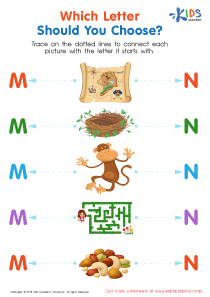Alphabet Recognition Normal Lowercase/Small Letters Worksheets for Ages 5-7
9 filtered results
-
From - To
Unlock your child's potential with our Alphabet Recognition Normal Lowercase/Small Letters Worksheets for ages 5-7. Designed for young learners, these engaging activities make mastering lowercase letters fun and effective. Each worksheet is tailored to improve your child's ability to recognize, write, and understand lowercase letters through various interactive exercises. With a combination of tracing, matching, and identifying letters in words, these worksheets facilitate the development of crucial reading and writing skills. Ideal for both classroom and home use, our resources support early literacy and pave the way for academic success Check out our collection today!
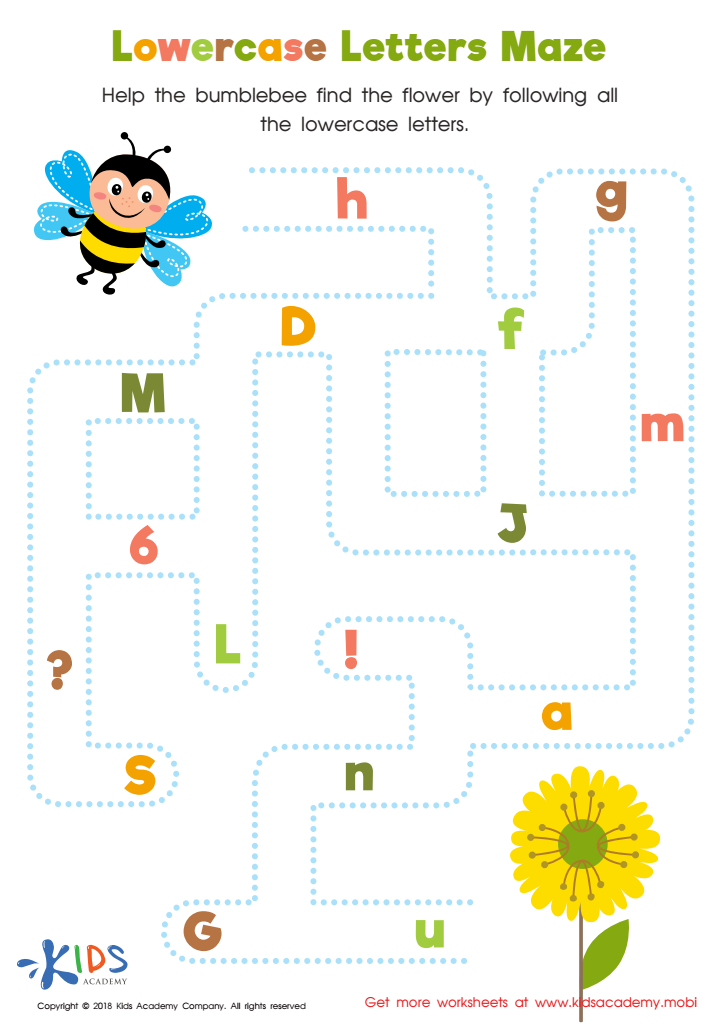

Lowercase Letters Maze Worksheet
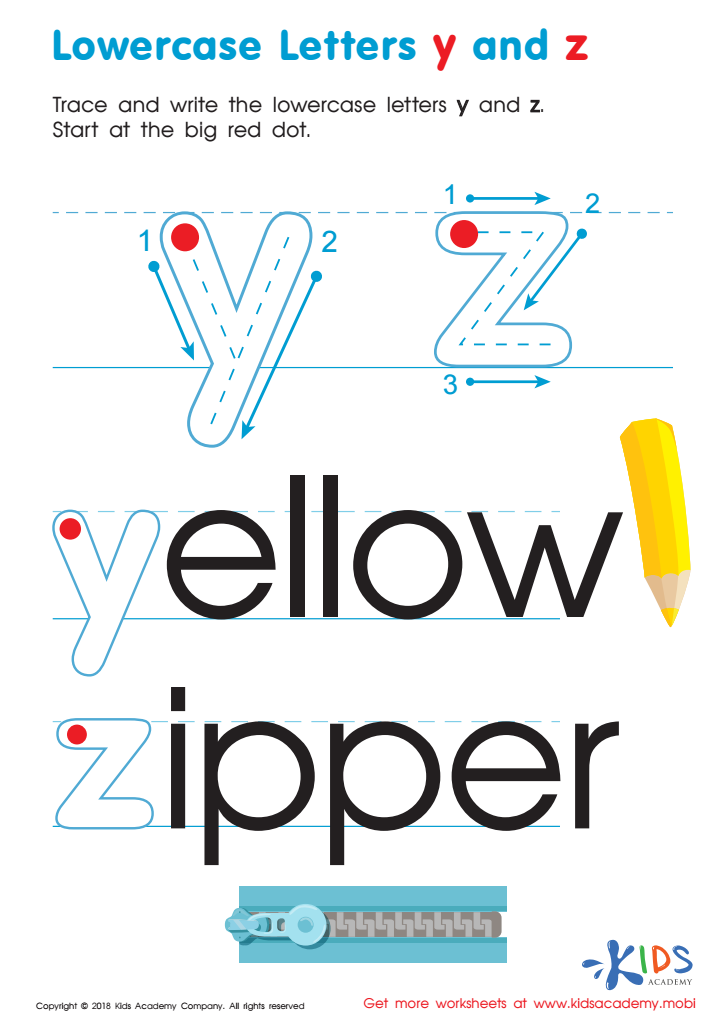

Lowercase Letters y z Worksheet
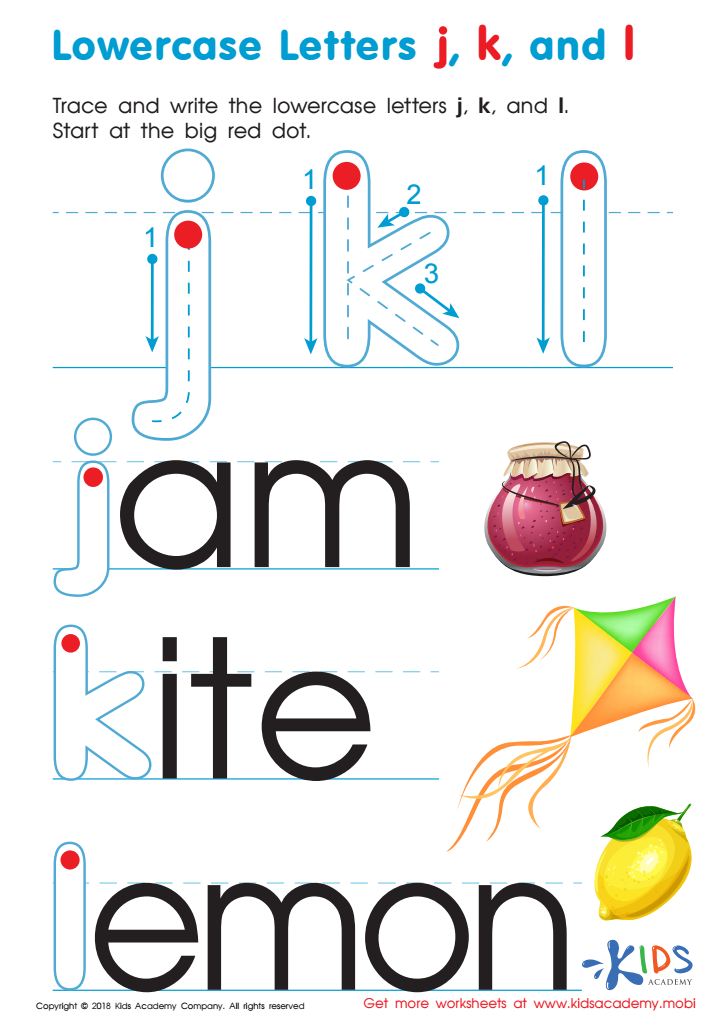

Lowercase Letters j k l Worksheet
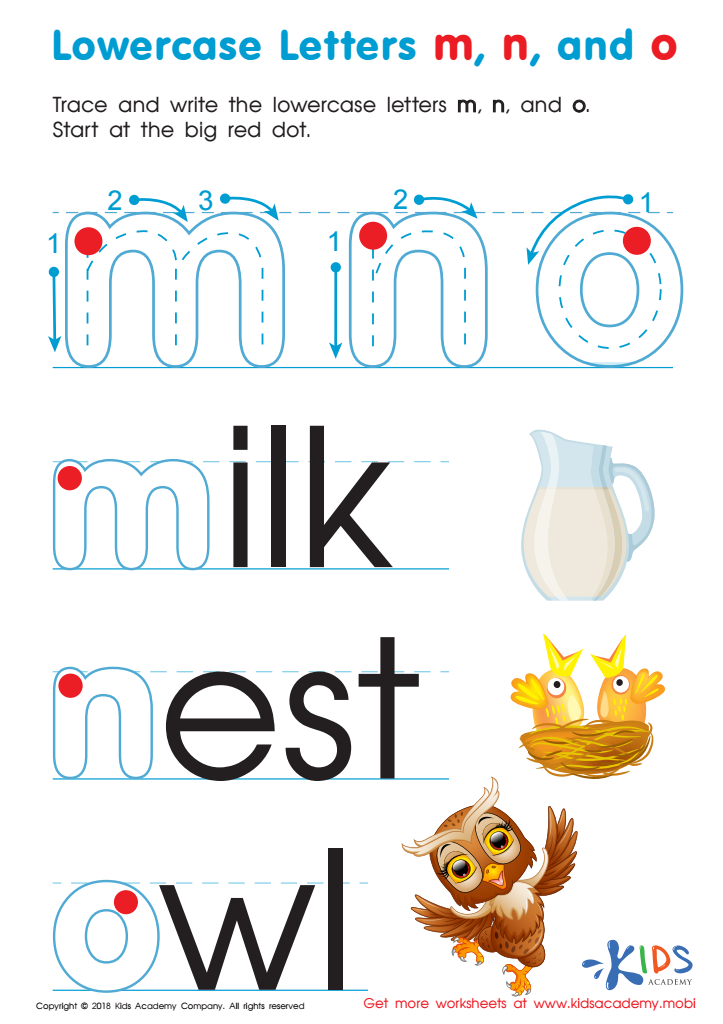

Lowercase Letters m n o Worksheet
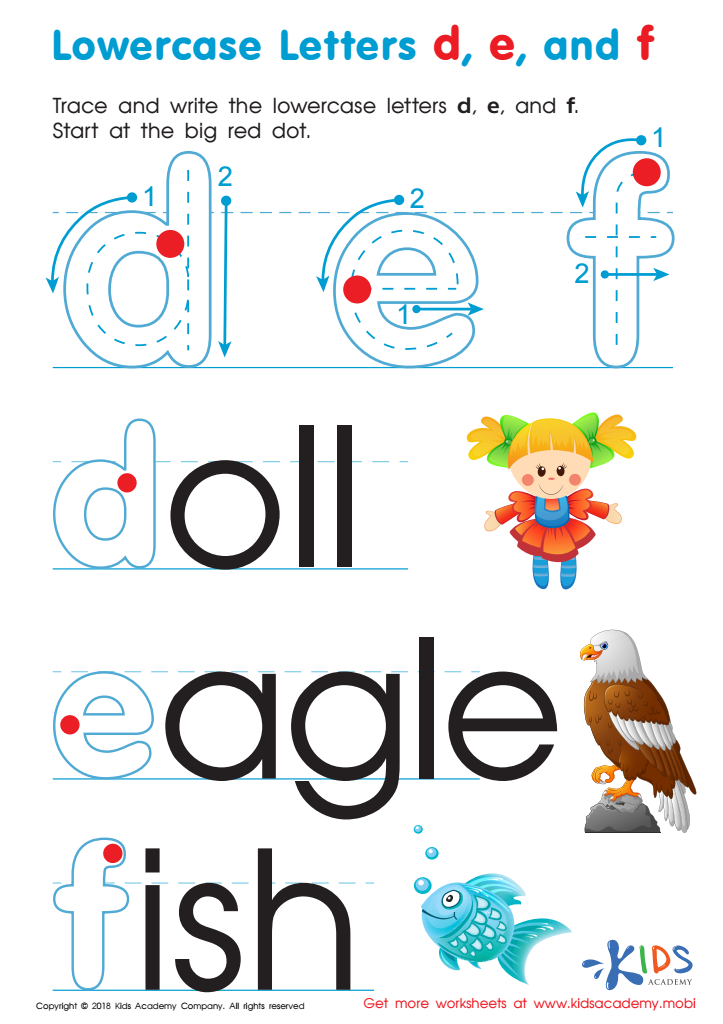

Lowercase Letters d e f Worksheet
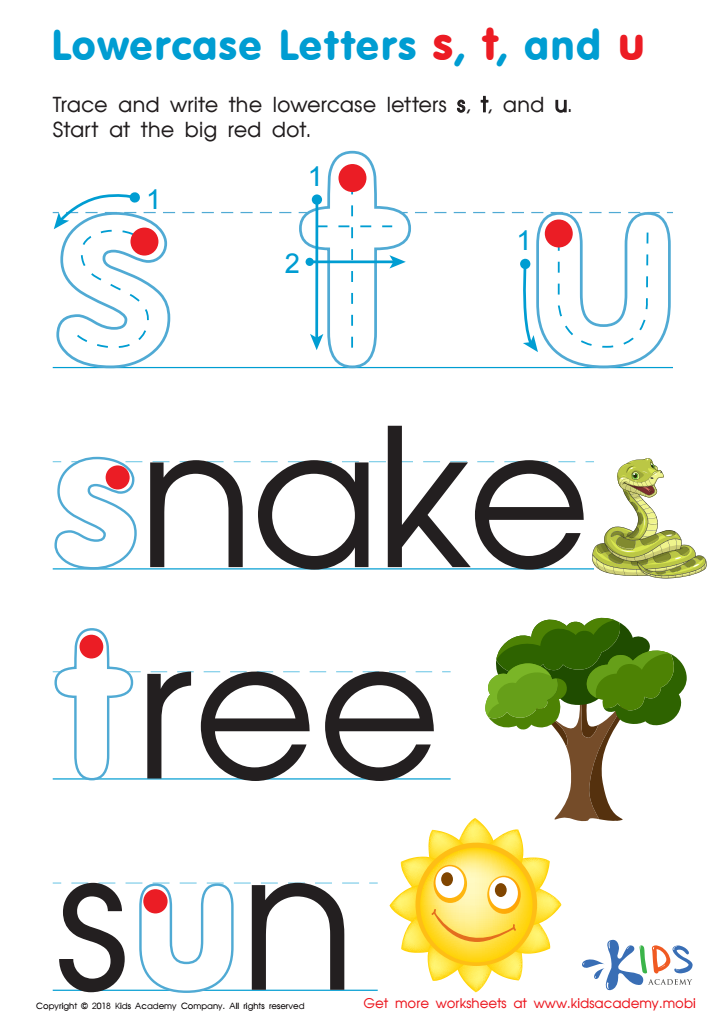

Lowercase Letters s t u Worksheet
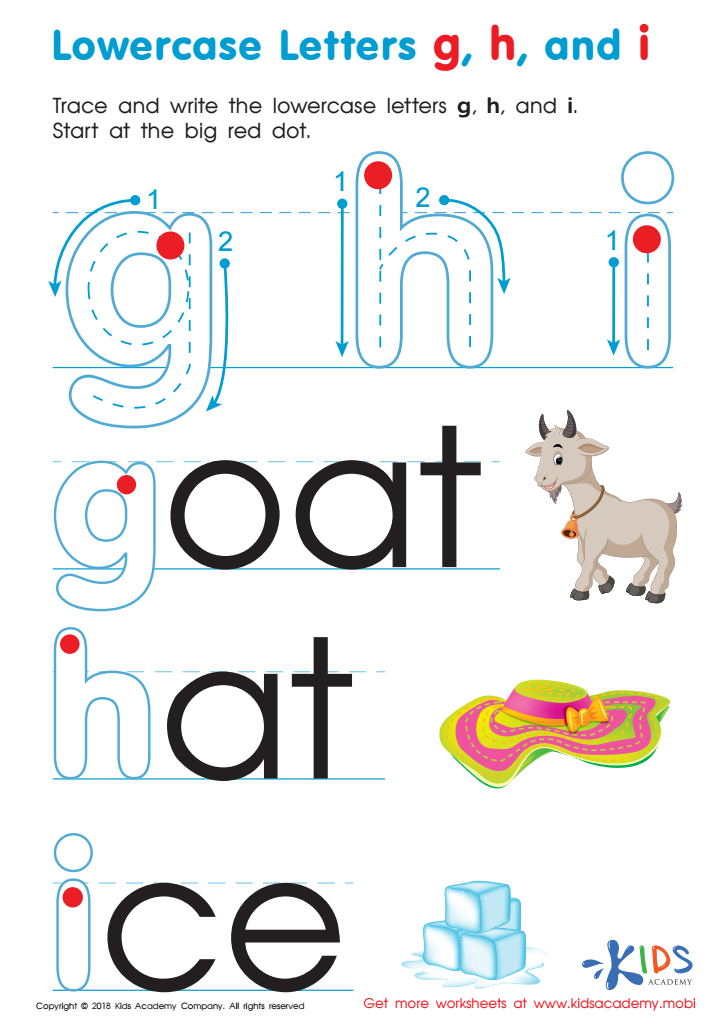

Lowercase Letters g h i Worksheet
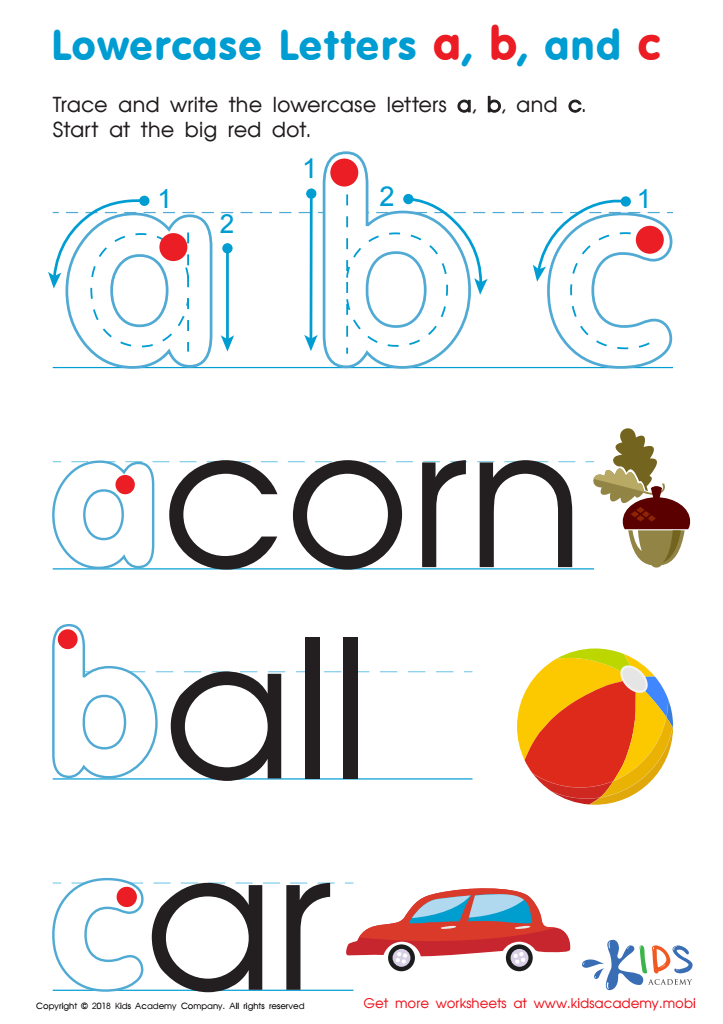

Lowercase Letters a b c Worksheet
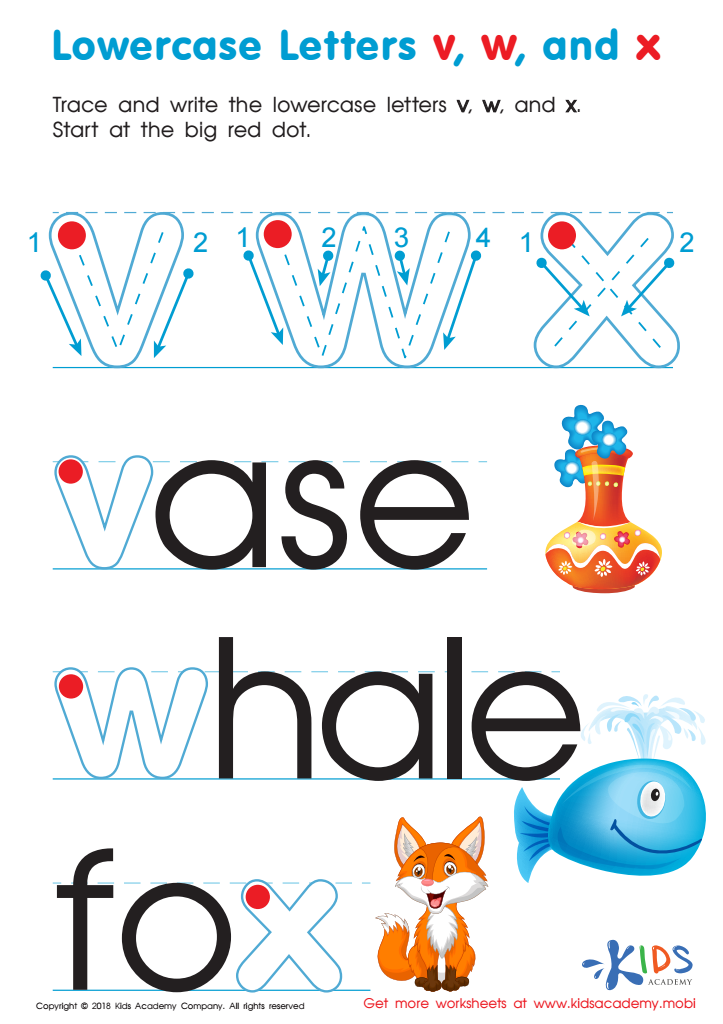

Lowercase Letters v w x Worksheet
Alphabet recognition of lowercase letters is a fundamental skill for young children, especially critical for those aged 5-7. This skill serves as the building block for more advanced literacy development.
First, recognizing lowercase letters is closely tied to early reading abilities. Most printed texts, which children encounter in books and everyday environments, predominantly use lowercase letters. Understanding these symbols enhances their ability to decode words, paving the way for fluent reading and comprehension.
Second, alphabet recognition aids in writing skills. As children learn to identify lowercase letters, they become more proficient in forming these letters themselves. This facilitates more accurate and legible writing, essential for communicating ideas clearly.
Additionally, familiarizing children with lowercase letters can boost their confidence. Mastery of this skill gives children a sense of achievement and promotes a positive attitude toward learning. This early success can instill a lifelong love of reading and writing.
Finally, alphabet recognition is linked to other aspects of cognitive development, such as memory and attention to detail. Engaging with letters helps refine these skills, which are crucial across all learning areas.
In sum, alphabet recognition of lowercase letters is a crucial step in a child's educational journey, supporting not only literacy but also broader cognitive growth.
 Assign to My Students
Assign to My Students




